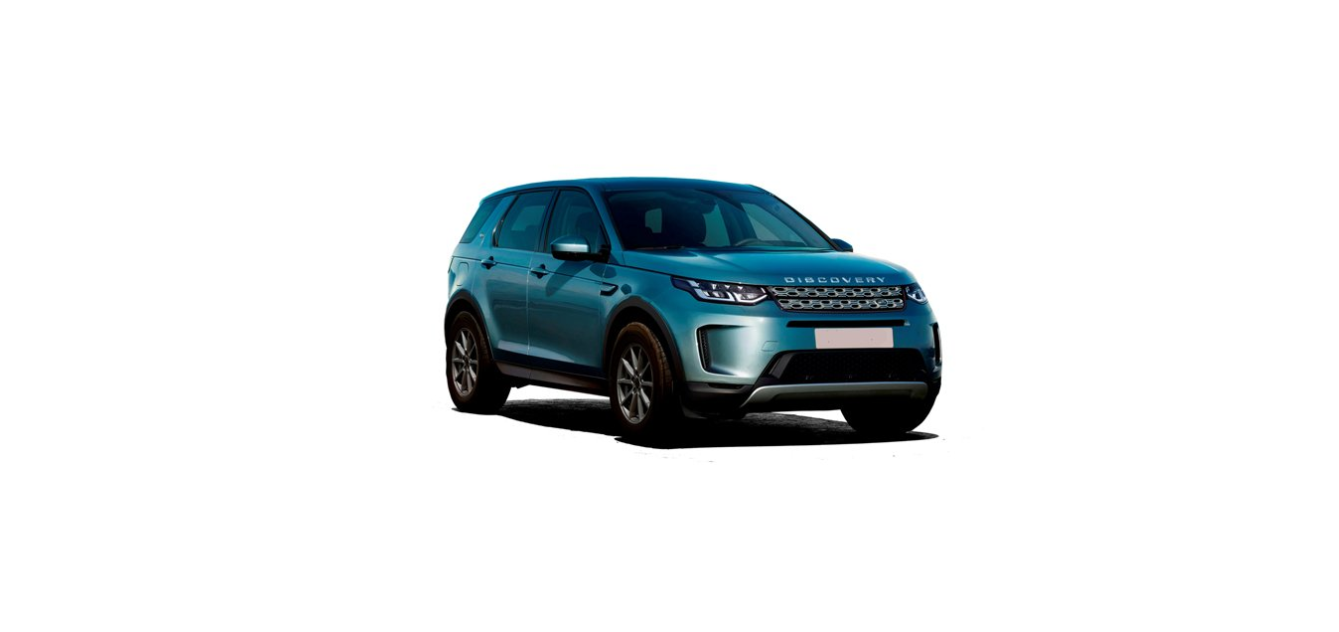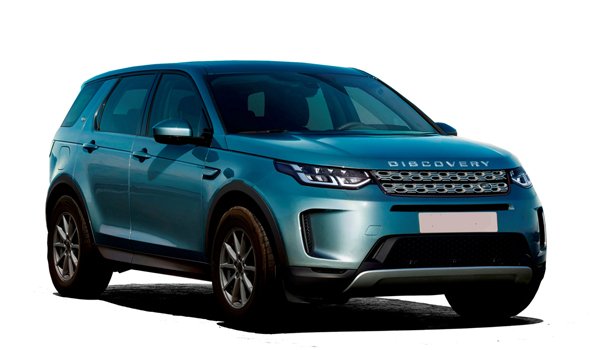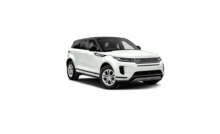2022 Land Rover Discovery Sport Parking Features Owners Manual




2022 Land Rover Discovery Sport Parking Features


PARKING SAFETY
Make sure the following warnings and cautions have been read and fully understood before driving the vehicle. Failure to use the parking system safely could result in damage to the vehicle, or an accident, leading to serious injury or death.
The sensors for the parking system do not detect moving objects, such as children and animals until the objects are too close. The driver is responsible for driving with due care and attention during low-speed maneuvers.
The parking system is a driving aid only. The driver is responsible for driving with due care and attention during low-speed maneuvers.
The driver must maintain full control of the accelerator and brake pedals throughout low-speed maneuvers.
All sensors must be kept clean and free from debris or obstructions, e.g., leaves, mud, snow, ice, frost, or insects. Failure to keep the sensors clean may result in sensor miscalculation or false indications.
The parking system must not be used if a sensor is damaged, or the bumper is damaged sufficiently enough to affect a sensor mounting point. Failing to follow these guidelines may result in sensor miscalculation or false indications.
The parking system must not be used if a sensor is obstructed by items attached to the vehicle, e.g., bumper covers, a bicycle rack, or stickers. Failing to follow these guidelines may result in sensor miscalculations or false indications.
Make sure the relevant safety warnings and cautions have been read and understood before operating the touchscreen. See TOUCHSCREEN SAFETY.
The parking system sensors may also be externally influenced by noise generated from air brakes, emergency vehicles, motorcycles, pneumatic drills, and high wind. The driver is responsible for driving with due care and attention during low-speed maneuvers.
The sensors for the parking system may not detect some obstructions. For example, narrow posts or small objects close to the ground. Objects above sensor level may not be detected, e.g., when approaching a flatbed truck, the protruding part of the flatbed may not be detected. Additionally, the parking system operation may be limited, when maneuvering the vehicle near wooden objects, e.g., a wooden post.
Do not aim a high-pressure water jet directly at any of the sensors when washing the vehicle. Only use approved vehicle shampoo. Do not use abrasive materials, or hard or sharp objects, to clean the sensors. Failure to follow these guidelines may result in damage to the system or cause a system fault.
Particular care must be taken when using the parking feature if accessories are fitted to the front or rear of the vehicle. For example, a bicycle rack mounted in a position where it obstructs the operation of the parking sensor(s). If the affected sensor(s) is obstructed, the sensor(s) only indicates the distance from the bumper to the bicycle rack. Any obstacle beyond the detected accessory may not be indicated on the touchscreen display.
PARKING AID SYSTEM
Make sure the relevant safety warnings and cautions have been read and understood before operating the parking features. See PARKING SAFETY.
At vehicle start-up, the parking sensors may not detect low or high objects, even if the objects were detected during the original parking maneuver.
When the parking aid system is active, the system only provides warning tones when a threat is detected.
Only vehicles with 360° parking aid detect objects along the sides of the vehicle. Vehicles without 360° parking aid only detect objects front and rear of the vehicle. The parking aid system works in conjunction with the camera system. The parking aid system assists the driver while maneuvering the vehicle at low speed in confined spaces. A 360° vehicle plan view displays detected objects along the front, rear, and sides of the vehicle, when active. Object tracking is also used along the sides of the vehicle to monitor the vehicle’s blind spots. If a detected object is calculated to be a collision threat, it is displayed as a colored line over a black background. The distance from a collision threat is color-coded: yellow to amber to red, with red being the closest. Other detected objects that are not a collision threat are displayed as gray lines. Any detected objects considered a collision threat will trigger repeating warning tones. The warning tones increase in intensity as the collision threat becomes closer. The warning tones become continuous when the object is within 200 mm of the vehicle. Warning tones sound from the area in which a collision threat has been detected. While the vehicle is passing an object within its sensor range, the vehicle’s integrated systems calculate its steering trajectory. The touchscreen displays the trajectory lines on the 360° vehicle plan view and the camera main screen. The steering trajectory lines indicate the projected path of the vehicle, based on the current steering wheel position. See ON-ROAD CAMERA VIEWS.
SELECTING PARKING AID
Make sure the relevant safety warnings and cautions have been read and understood before operating the parking features. See PARKING SAFETY.
The parking aid system activates automatically when icon¹ is displayed on the touchscreen’s passenger sidebar. See PASSENGER SIDE BAR ICONS.
When a collision threat is detected, the touchscreen automatically displays a 360° vehicle plan view. A warning tone also sounds.
The parking aid system’s automatic parking aid alerts default state is on. To switch off the automatic parking aid, complete the following steps:
- Touch the settings icon from any screen. See SYSTEM SETTINGS.
- Select Vehicle.
- Select Driver Assistance.
- Select Low-speed maneuvering.
- Automatic parking aid: Touch to switch the toggle on or off.
To activate the parking aid system manually, touch the camera icon². See PASSENGER SIDE BAR ICONS.
Automatic parking aid icon.¹
Camera icon without automatic parking aid.²
PARKING AID VOLUME
To adjust the volume of the parking aid warning tones, rotate the media volume control while the tones are active. See AUDIO STEERING WHEEL CONTROLS. Touch the volume icon on the 360° vehicle plan view, to mute the warning tones for that maneuver only. See ON-ROAD CAMERA VIEWS.
PARKING AID LIMITATIONS
The parking aid system is deactivated and cannot be reactivated if:
- The vehicle’s speed is greater than 10 mph (16 km/h).
- Park (P) is selected.
- There is a system fault.
The parking aid system warning tones do not sound and the automatic parking aid is unavailable if:
- An off-road driving program is selected. See TERRAIN RESPONSE OVERVIEW.
- The off-road camera view is displayed. See OFF-ROAD CAMERA VIEWS.
PARKING AID SYSTEM FAULT
If a parking aid system fault is detected, a red border displays on the 360° vehicle plan view. See ON-ROAD CAMERA VIEWS. If all of the sensors are clean and the fault is not rectified after the vehicle’s electrical system is restarted, contact a retailer/authorized repairer.
Recent Posts
VW Jetta Engine Fuse Box Diagram
Access the comprehensive 2010-2018 VW Jetta Passenger Fuse Box Diagram to troubleshoot electrical issues effectively.…
VW Jetta Passenger Fuse Box Diagram
Explore the comprehensive VW Jetta Passenger Fuse Box Diagram to troubleshoot electrical issues effectively. Understand…
2023 Ford F-150 Lightning Fuse Box Diagram
Under Hood Fuse Box Location Remove the front luggage compartment cover. Under Hood Fuse Box…
2022 Kawasaki NINJA H2 SX SE Brake Lever Adjuster Owner’s Manual
2022 Kawasaki NINJA H2 SX SE Brake Lever Adjuster Owner's Manual NOTICE Only adjust the front…
2023 Land Rover Range Rover Evoque Exiting The Vehicle Owners Manual
2023 Land Rover Range Rover Evoque Exiting The Vehicle SINGLE LOCKING WARNING Before exiting the…
2023 Land Rover Range Rover Evoque Front Seats Owners Manual
2023 Land Rover Range Rover Evoque Front Seats FRONT SEAT SAFETY Make sure to read…
